38 independent vs major record labels
Indie Vs. Major: Which Record Label Contract Is Right For You? • Close Personal Relationships: Independent record labels tend to have much smaller artist rosters than the larger, major record labels. Although this also means there is a smaller total staff employed by the label, artists typically work one-on-one with a representative who they can form a much more personal relationship with. What Is An Independent Record Label- Pros & Cons So, independent vs major record labels, which one is better? Well, it all boils down to how these two establishments operate. Majors offer more financial backing and promise more exposure. However, they have tougher contacts and offer lower royalty percentages.
Independent VS Major Record Label - YouTube Here are some of the pros and cons of being indie and being signed to a major record label.#musicbusiness#musicbusinessadvice#MajorrecordlabelDownload the fr...
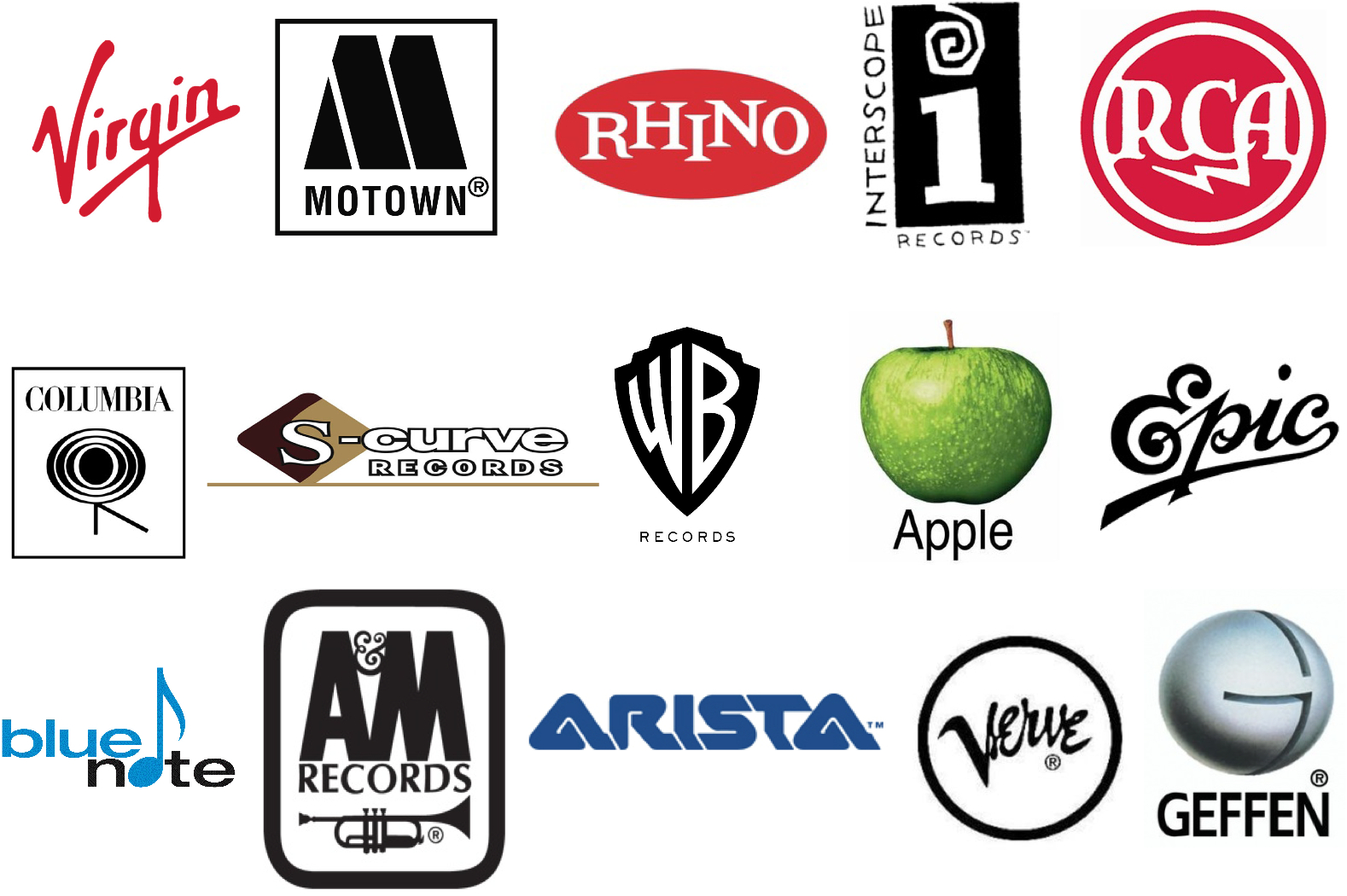
Independent vs major record labels
Independent label vs The Major labels. Pros and Cons! - Medium While major labels are global and operate their own publishing and distribution companies, indie labels work with other smaller companies, either in long-term partnerships or in smaller contractual... Independent labels vs major labels - SlideShare • The Independent Label that I have looked at is a UK based Label called 'Domino Recording Company'. • It was founded in 1993 by Laurence Bell and Jacqui Rice. • It is known for supporting artists who's music genre is 'Indie Rock' and 'Indie Pop'. • It also now has a branch in Brooklyn, New York. Independent Record Labels Vs. Major Record Labels by Jimmie Smith - Prezi The average Major label contract for a newly signed band or artist has a split percent of 98% to 2% (Also at npr.org) so this leaves our band with $155,755.16 So, the start up costs for 'Example' Records will be $30,000, since this amount is a happy medium between $10,000 and $50,000.
Independent vs major record labels. Indie Label vs Major Label: which is best for you? - Kore Studios A record label is defined as Indie (or Independent) if it operates without the huge funding of major recording labels. Unlike major international labels who are big and rich enough to operate their own publishing, distributing and marketing companies, indie labels collaborate with other smaller companies to produce and sell music. Pros: The Pros and Cons of Independent Record Label Deals - The Balance Careers Any music recording label that operates without the funding of the organizations of the major music labels is considered an indie label. While major labels are global and operate their own publishing and distribution companies, indie labels work with other smaller companies, either in long-term partnerships or in smaller contractual relationships for their distribution and publishing needs. Independent record label - Wikipedia An independent record label (or indie label) is a record label that operates without the funding or distribution of major record labels; they are a type of small- to medium-sized enterprise, or SME. The labels and artists are often represented by trade associations in their country or region, which in turn are represented by the international trade body, the Worldwide Independent Network ( WIN ). Indie vs. Major Record Labels: Which is Right for You? There are several factors worth considering when weighing the pros and cons of indie and major record labels: 1. Trust and Close Working Relationships Indie labels and boutiques generally have the advantage here. They have smaller artist rosters, which means you will get more attention.
Major vs independent record labels - slideshare.net The independent labels usually aimed their releases at a small but devoted audience, not relying on mass sales for success, giving artists much more scope for experimentation and artistic freedom. Record labels are often under the control of a Music Group. The artists are funded by major record company's who have the funding to support the artist. Indie Labels vs Major Labels: Differences & Which is Right For You For many, it's a more realistic goal and there are advantages of signing with a smaller, independent label. Pros and cons of independent record labels. Pros: Deals that are more artist-friendly; More creative freedom and development for the artists; A closer team that can give you more attention; Cons: Smaller budgets compared to majors What's the Difference Between a Major Label and Independent Label Deal ... There are certain advantages with a major label deal. A major has more financial resources than an independent, more support staff and leverage in the marketplace. On the other hand, some new artists may feel that a major label is not paying enough attention to them and offers less creative freedom than an independent. Of course, getting signed to a major is just the beginning of the process. Independent v Major Record Labels: Do they have the same ... - SSRN Abstract. Major record labels have direct and indirect ownership in Spotify, which raises the obvious question: do major labels use their influence over music streaming to make it harder for their upstream competitors (independent labels) to compete.
Lists of record labels - Wikipedia Lists of record labels cover record labels, brands or trademarks associated with marketing of music recordings and music videos. The lists are organized alphabetically, by genre, by company and by location. ... List of West Coast hip hop record labels; List of independent UK record labels; See also Major vs independent record label by Ethan Dardani Major vs independent record labels Differences The two labels are different in many ways. Firstly, the money available to the record labels contrasts massively. Columbia Records is a subsidiary of Sony Music Entertainment which is the second largest record label after Universal MAJOR RECORD LABELS vs INDEPENDENT Labels - YouTube Learn the differences between major record labels vs independent labels, and which is better for you, in this short clip of TAXI TV with Michael (TAXI Music ... Independent labels vs The Major labels - earpluguk.com Major record labels, such as Sony, Warner, EMI, Universal and many others are perfect examples of massive music corporations with millions of capital in the bank! With powerful distribution, advertising and media connections they have extreme leverage within the music industry which in turn enables them to successfully support major projects for the artists they choose to sign.
Being an Independent Artist vs. Signing to a Record Label 4. Bad contract deals: Many independent record labels have artist-friendly contracts. However, major record labels are known to have contract deals that give the artist a lesser percentage of royalties. Also, signing with a label means you have to deal with these complicated contracts and expensive layers if needed. Conclusion
Do Independent Labels and Major Record Labels Compete on a Level ... The researchers compared the number of streams for 719 artists represented by the major labels Sony and UMG and 1101 artists represented by independent labels to assess whether similarly popular artists had the same chance to rack up new streams over a period of two weeks.
Major Labels vs Independent Labels | Differences Between ... - TeenStar The major drawback of using an independent label is that it is more likely they will have a much smaller budget for recording, production, and marketing. This means that artists often have to invest more time and energy into self-promotion if they want to get adequate exposure. Record label roles and responsibilities
Independent Record Labels Vs. Major Record Labels by Jimmie Smith - Prezi The average Major label contract for a newly signed band or artist has a split percent of 98% to 2% (Also at npr.org) so this leaves our band with $155,755.16 So, the start up costs for 'Example' Records will be $30,000, since this amount is a happy medium between $10,000 and $50,000.
Independent labels vs major labels - SlideShare • The Independent Label that I have looked at is a UK based Label called 'Domino Recording Company'. • It was founded in 1993 by Laurence Bell and Jacqui Rice. • It is known for supporting artists who's music genre is 'Indie Rock' and 'Indie Pop'. • It also now has a branch in Brooklyn, New York.
Independent label vs The Major labels. Pros and Cons! - Medium While major labels are global and operate their own publishing and distribution companies, indie labels work with other smaller companies, either in long-term partnerships or in smaller contractual...
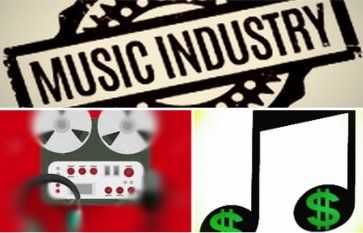

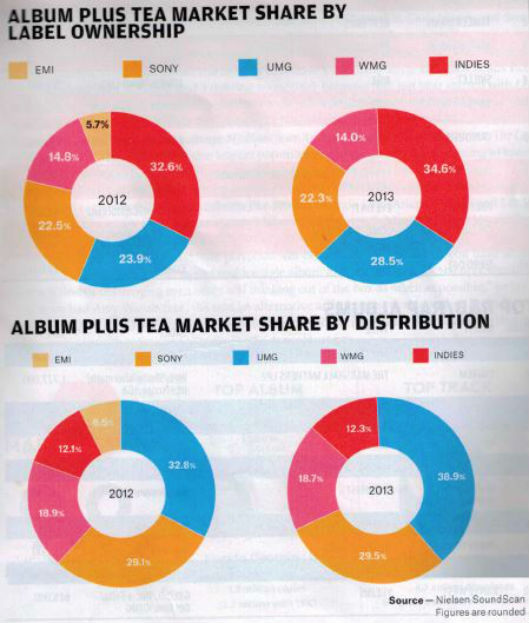
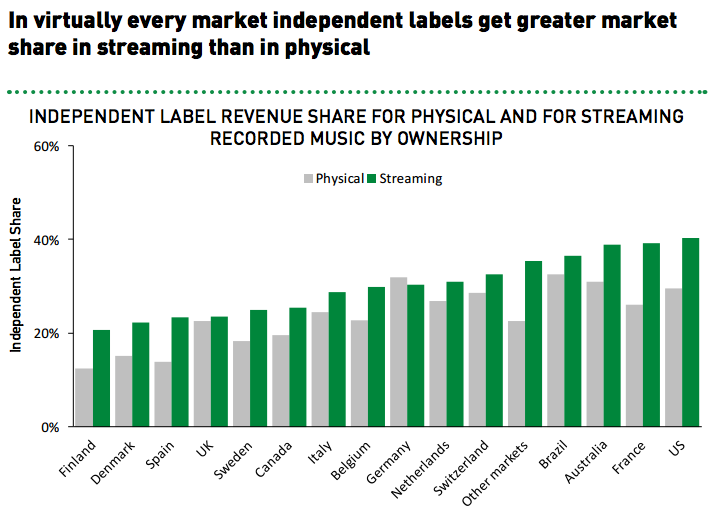
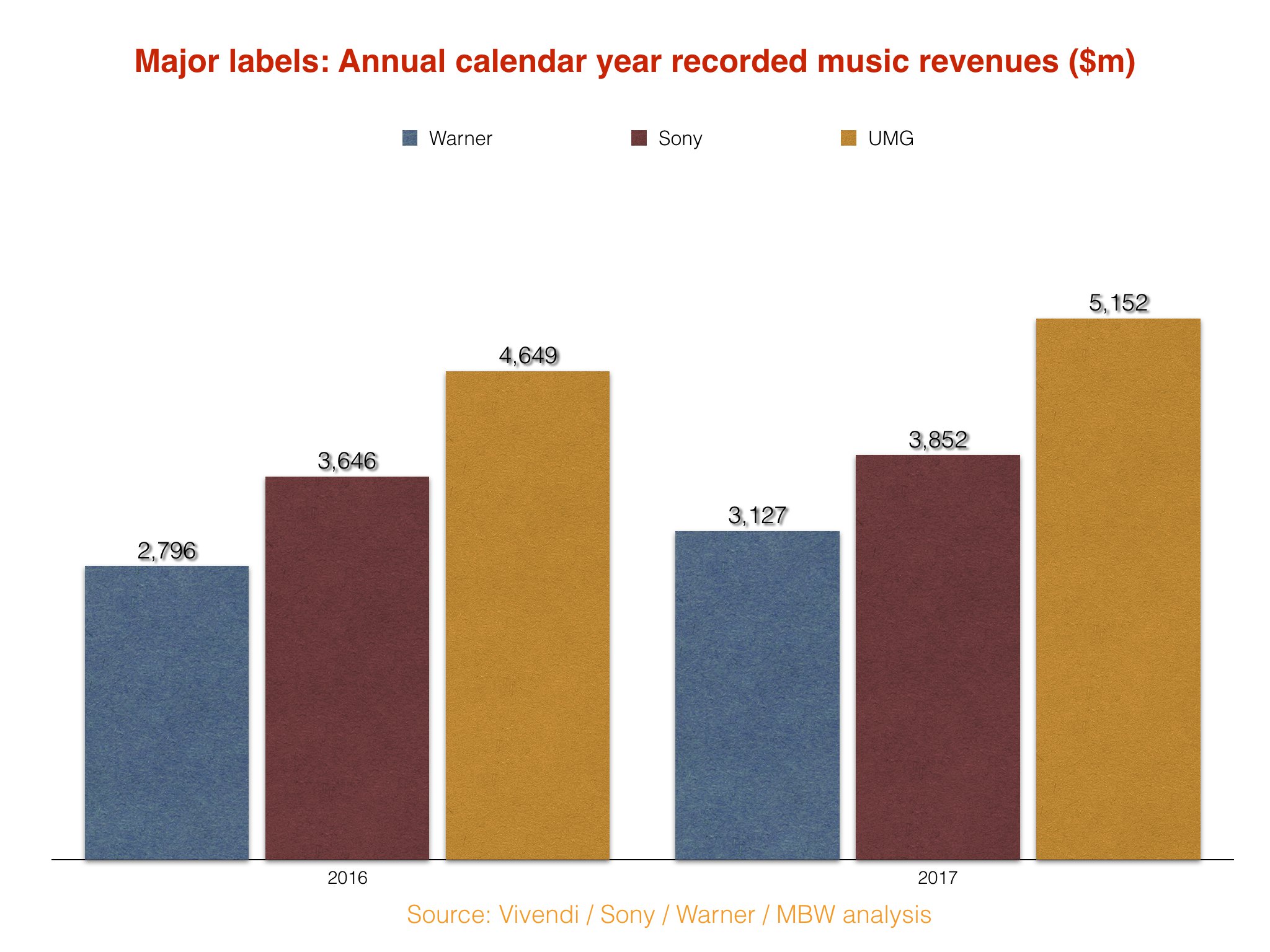
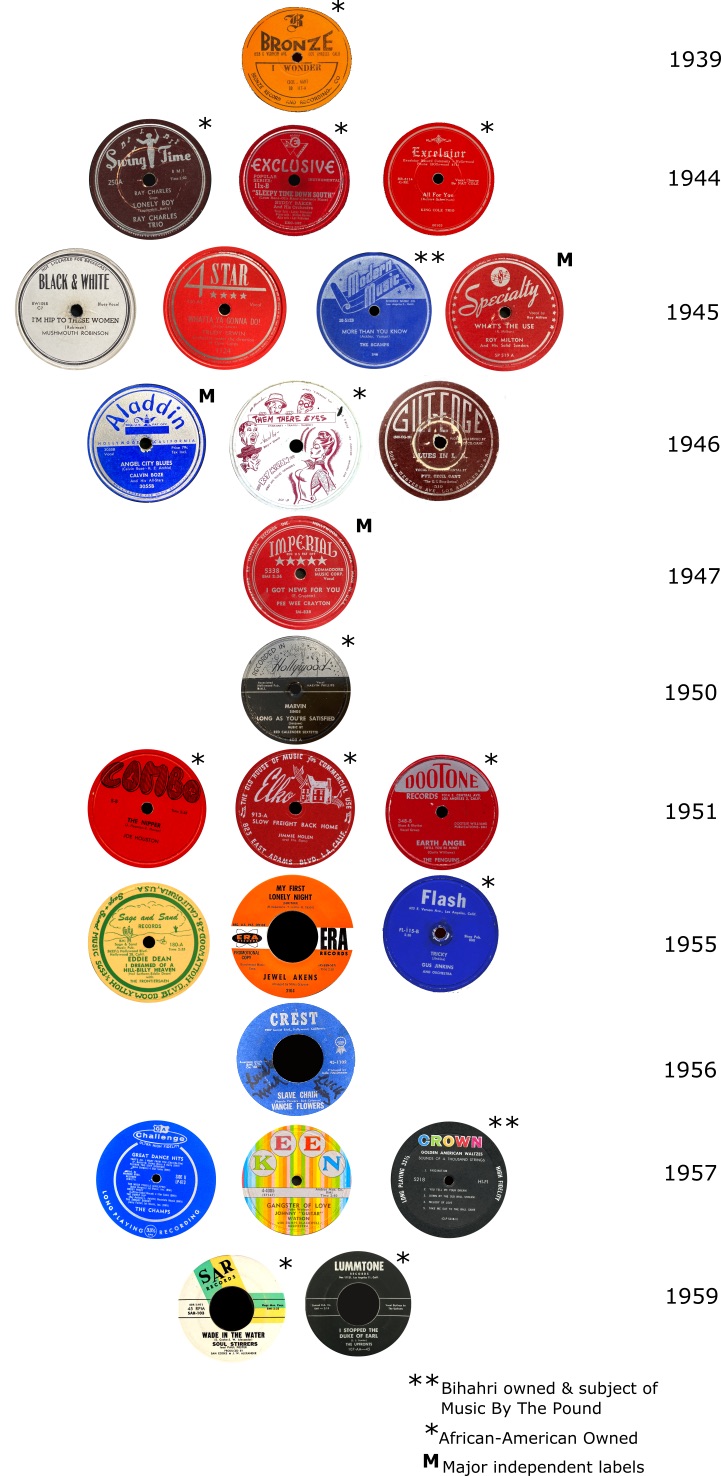

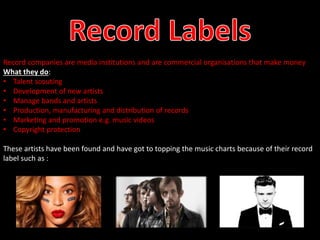



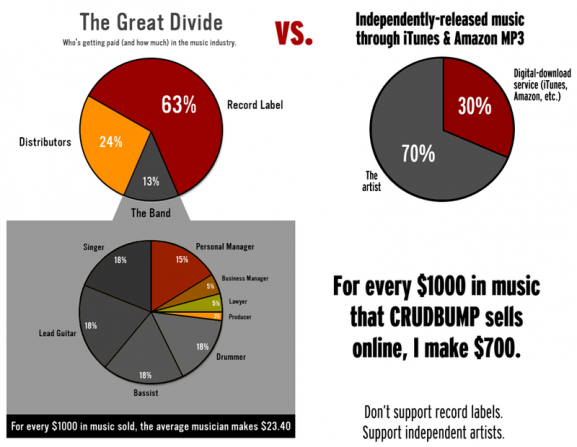

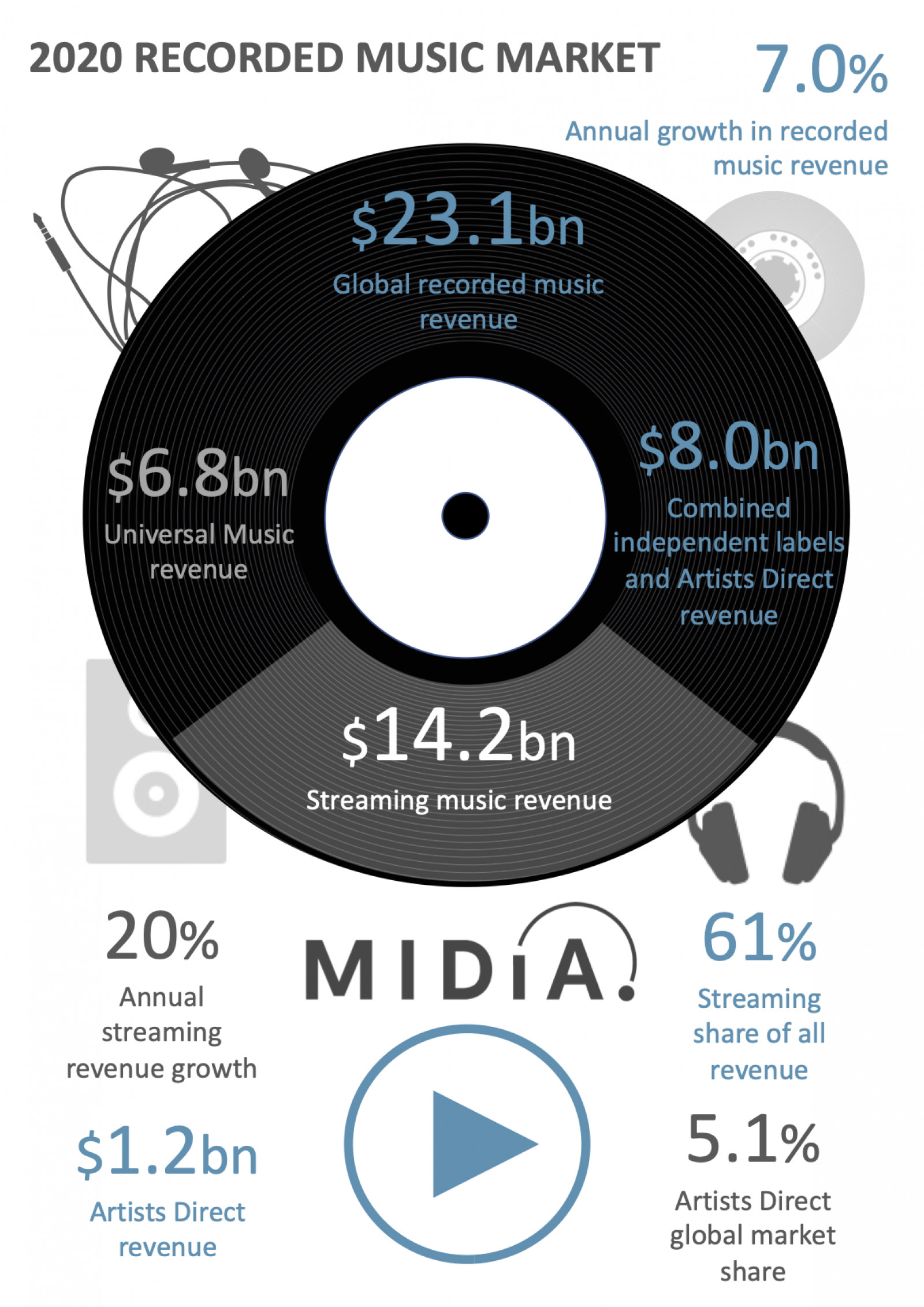



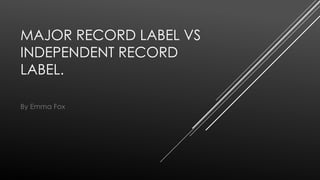
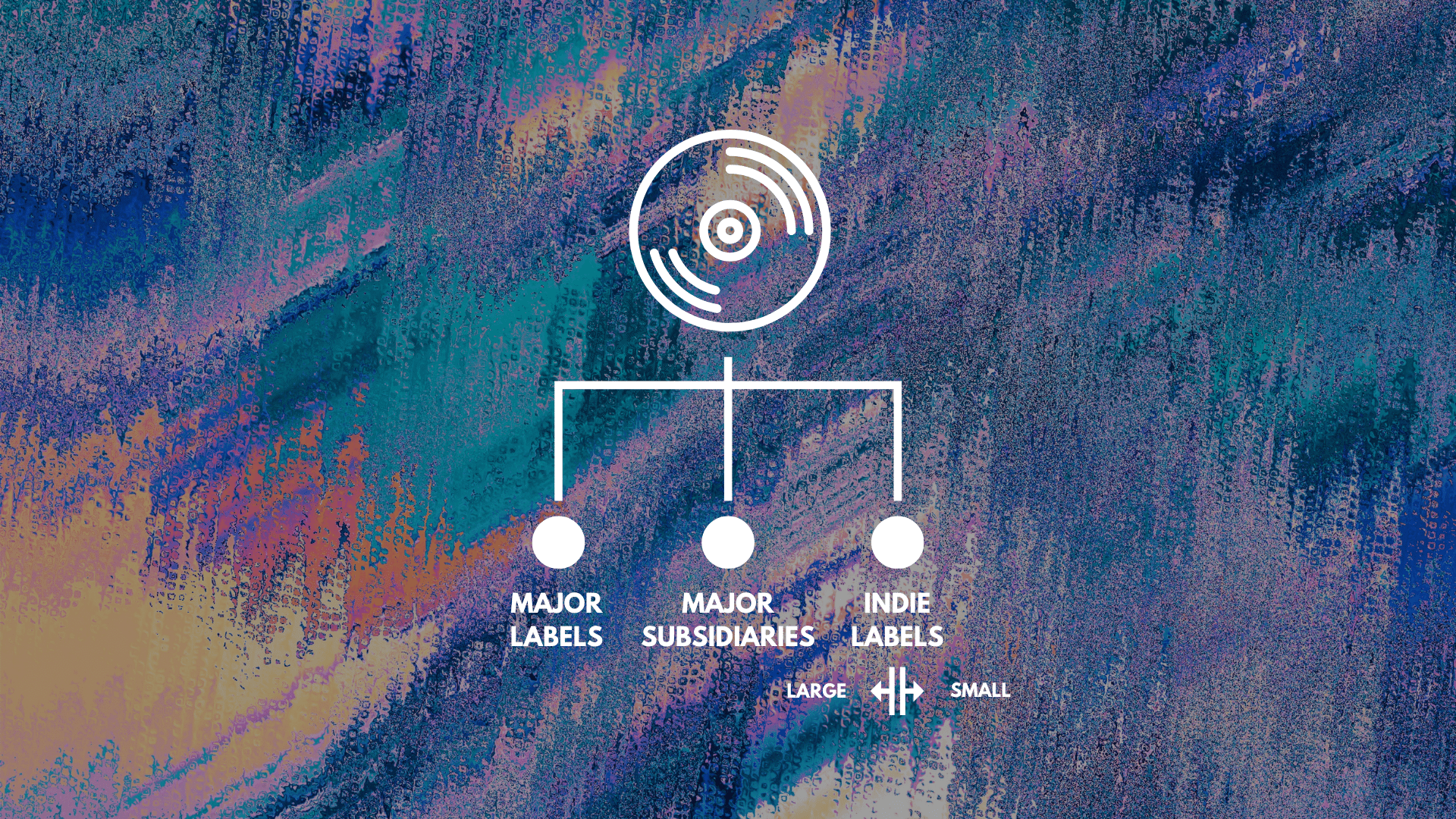
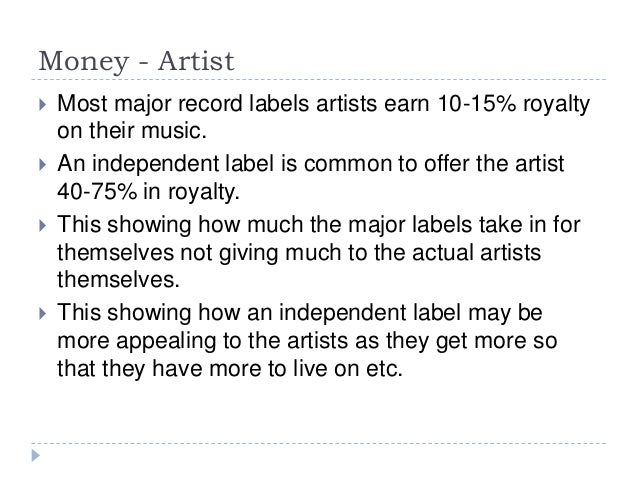

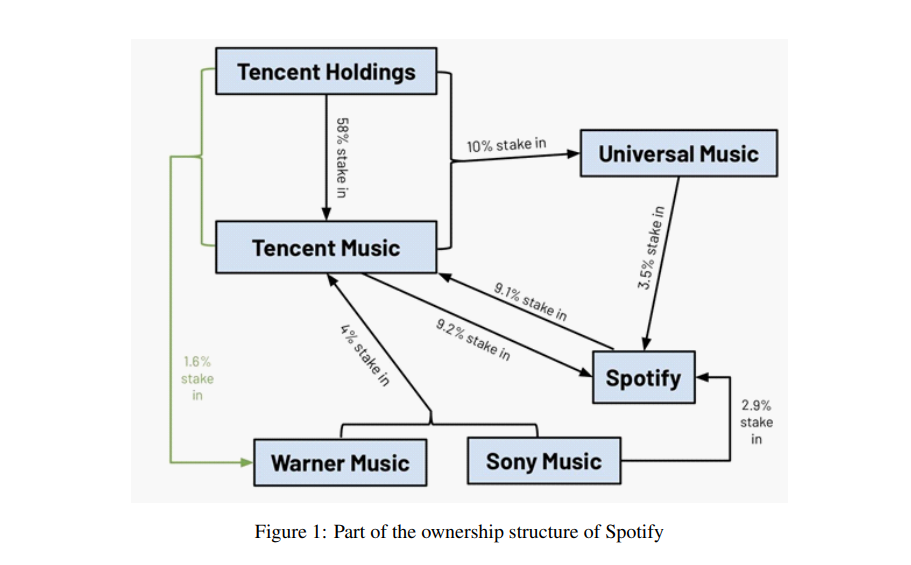


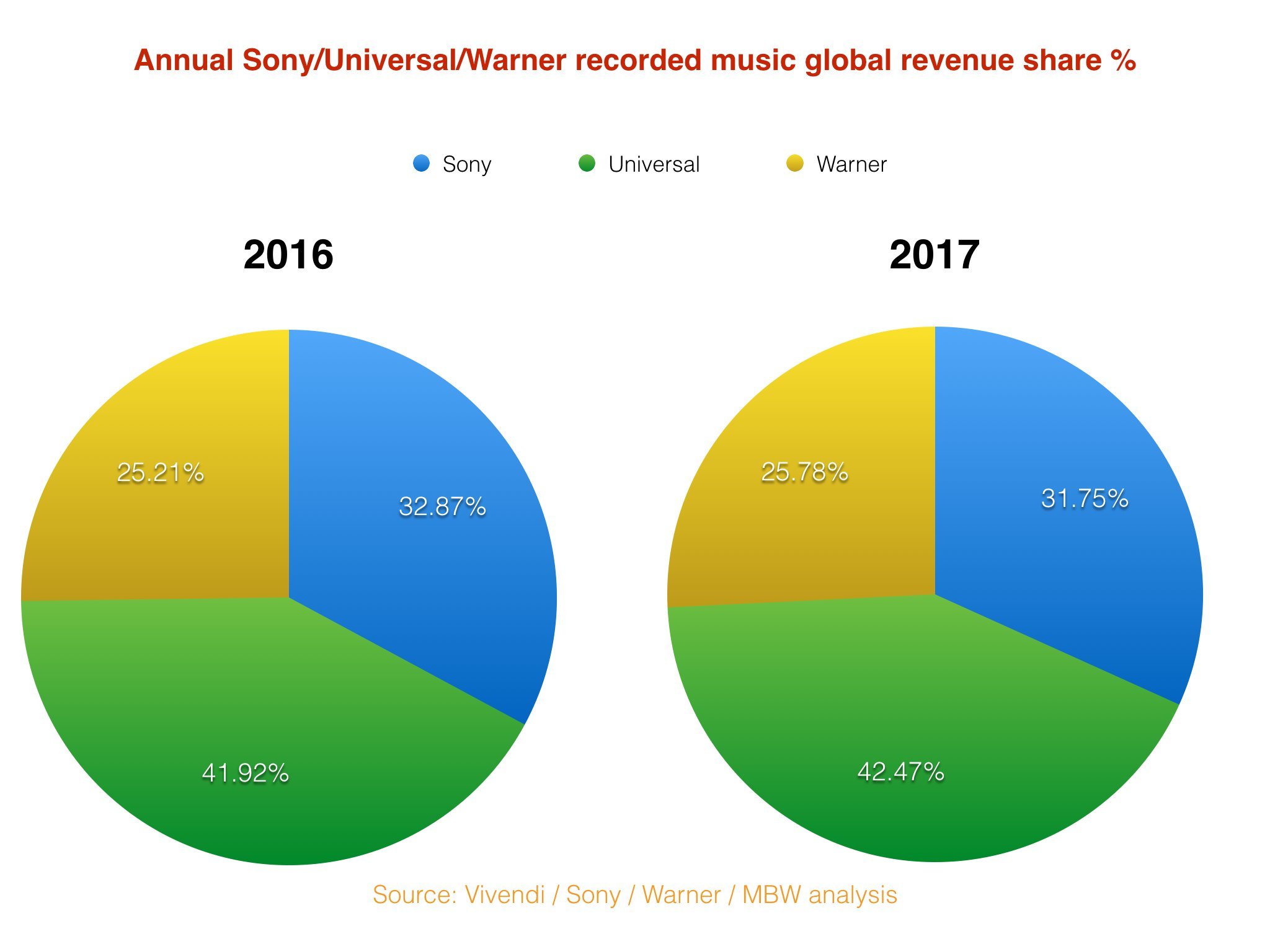
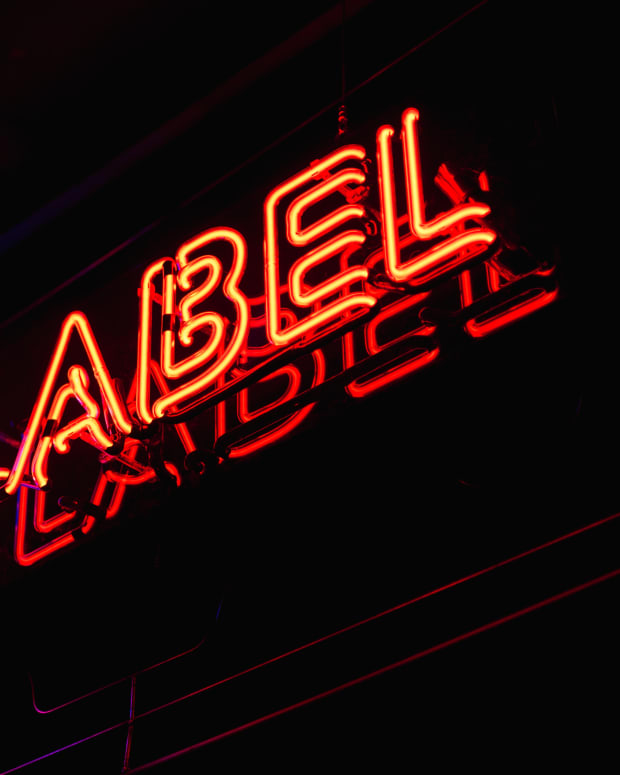
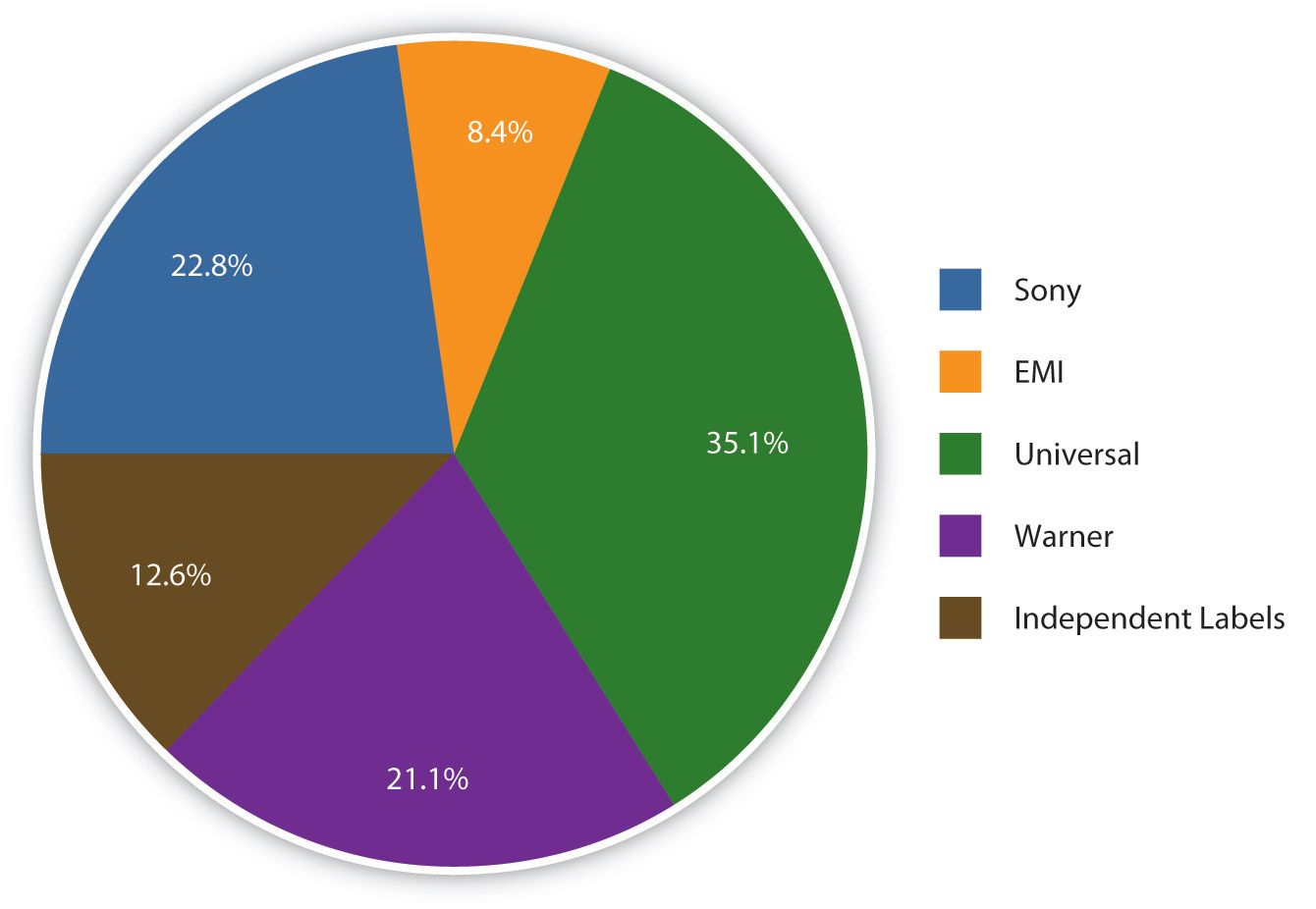
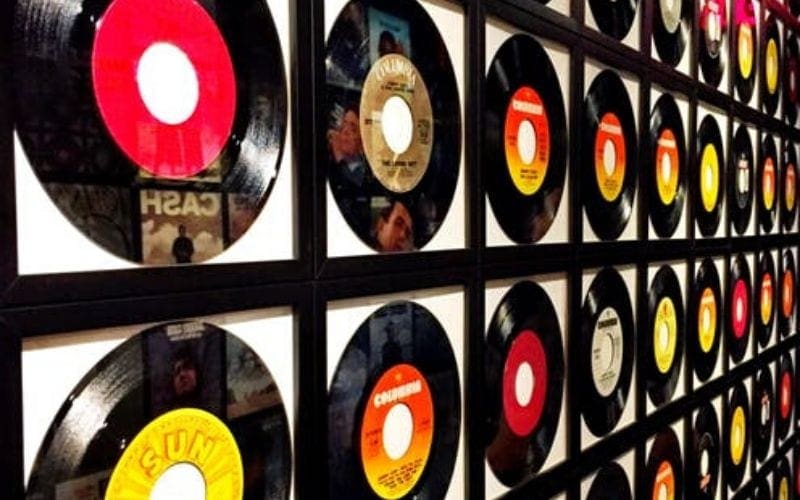
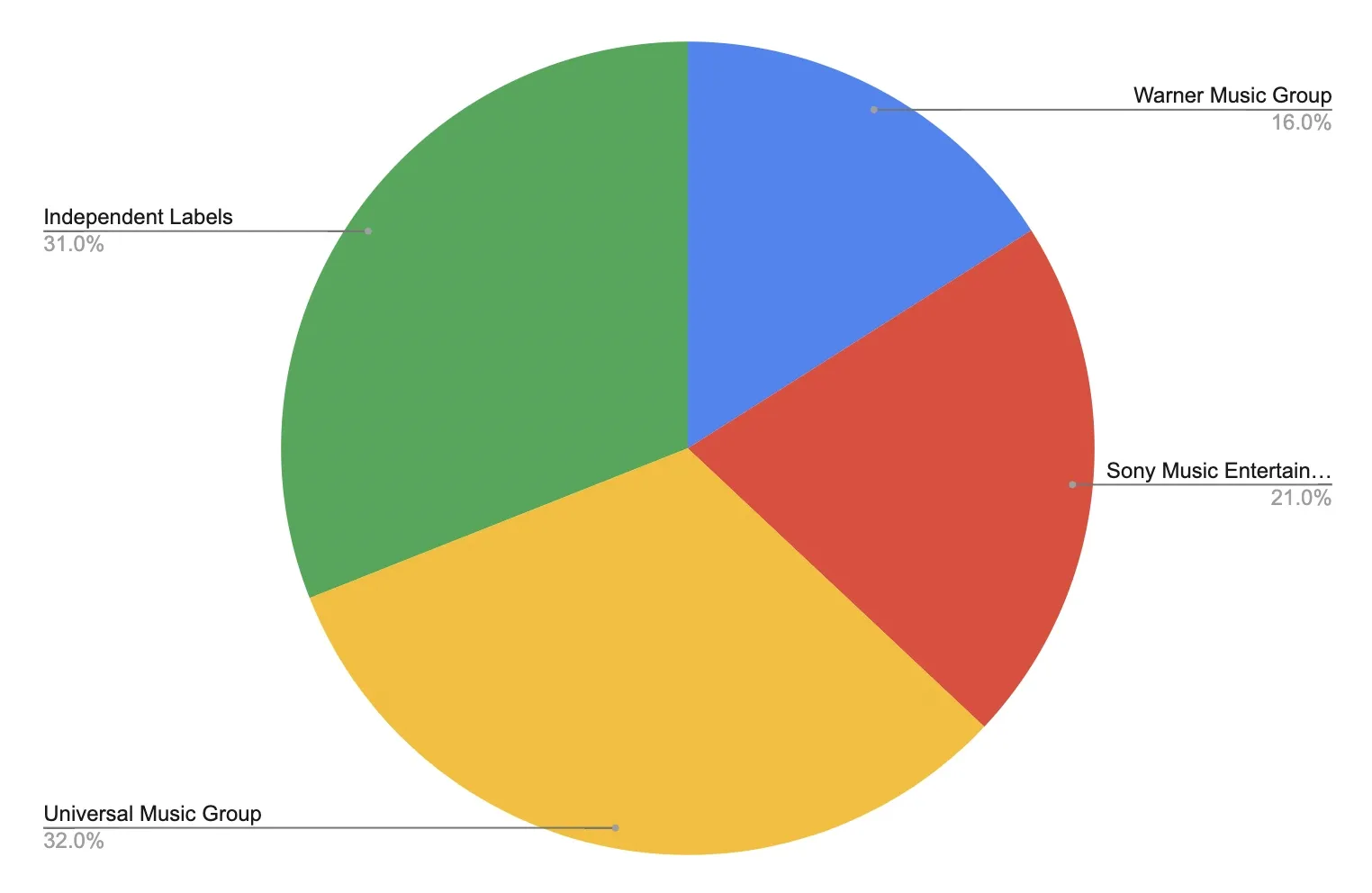
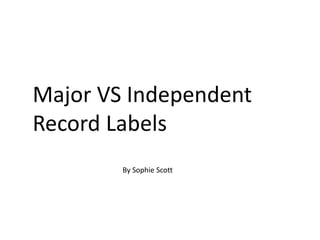

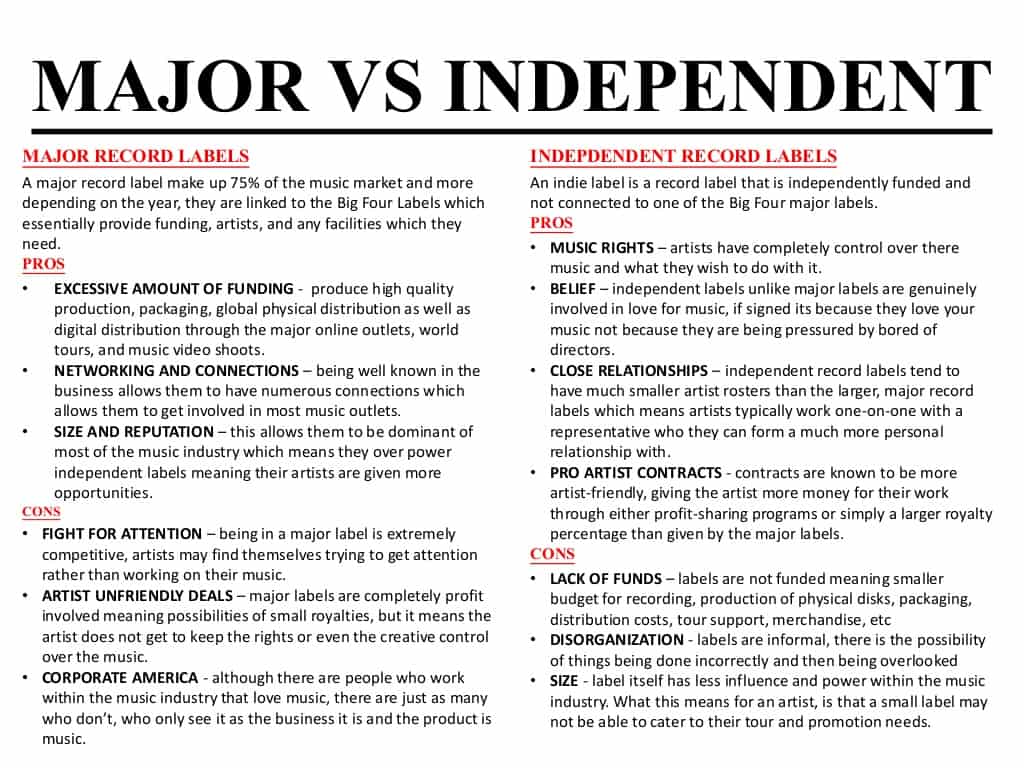
Post a Comment for "38 independent vs major record labels"